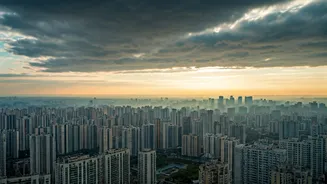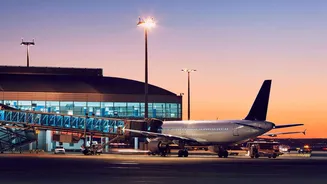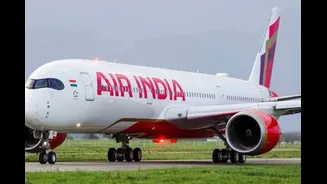Air Quality Declines
The air quality in Delhi has recently taken a significant downturn, moving towards the 'very poor' category, a stark reminder of the persistent challenges
faced by the city's residents. This deterioration has triggered the implementation of the Graded Response Action Plan (GRAP) Stage 2, which aims to bring immediate improvements to the atmospheric conditions. The enforcement of GRAP Stage 2 indicates that the levels of pollutants in the air have crossed the thresholds that warrant stricter measures. These steps are critical to protect public health and manage the impact of pollution, particularly as winter approaches, a time when air quality often worsens due to weather patterns and seasonal activities. The authorities are likely to be monitoring the situation closely, potentially adjusting measures as air quality fluctuates.
GRAP 2 Implementation
With the air quality deteriorating, the government initiated Stage 2 of the Graded Response Action Plan (GRAP). The GRAP framework is a series of emergency measures designed to be activated based on the severity of air pollution in the city. Stage 2 specifically enforces stricter actions like the halting of certain construction activities and the restriction of operations at some industrial units. These measures are designed to curb sources of pollution and allow the air quality to improve. This phase also includes enhanced surveillance and monitoring to make sure that these measures are implemented effectively, with the goal of minimizing the impact of pollution on public health. The authorities are emphasizing the urgency of these actions to tackle air pollution during this critical period.
Impact and Measures
The implications of the 'very poor' air quality in Delhi are concerning, primarily due to the adverse health effects that pollution can bring about. The authorities are implementing a range of measures to minimize the damage and protect people. These actions include targeted restrictions on specific pollution sources, such as construction activities that release dust and emissions from certain industrial operations. Also, increased monitoring of air quality, along with stringent enforcement of regulations to check polluting activities, is being implemented to make sure compliance. These combined efforts are part of a larger plan to improve Delhi's air quality, aiming at promoting public health and well-being. Regular updates and advisories are anticipated to guide residents on necessary precautions and ways to limit exposure.
Health Advisory Released
The city authorities have released a health advisory as a response to the current situation. It emphasizes the need for residents, especially those with pre-existing conditions and children, to take precautions to protect themselves. The recommendations might include avoiding strenuous outdoor activities, staying indoors when possible, and using air purifiers where available. The government may also be urging citizens to use public transportation or carpool to lower emissions. Through various media channels, the authorities are disseminating information on how to protect oneself from air pollution and what measures to take. The goal of these advisory measures is to provide the public with the information they need to protect themselves during the period of decreased air quality.














